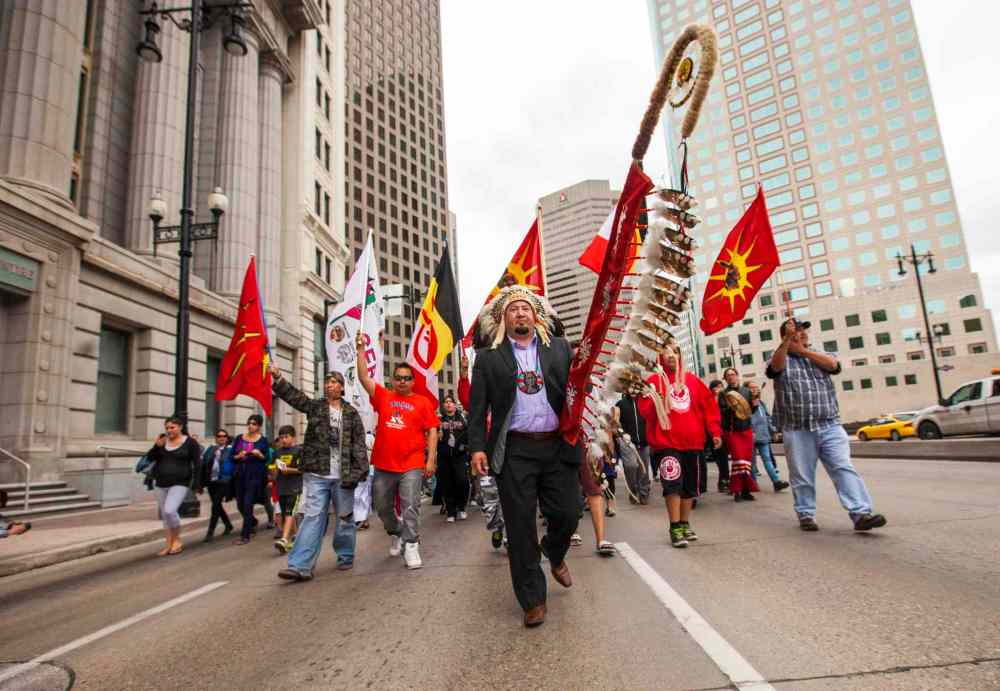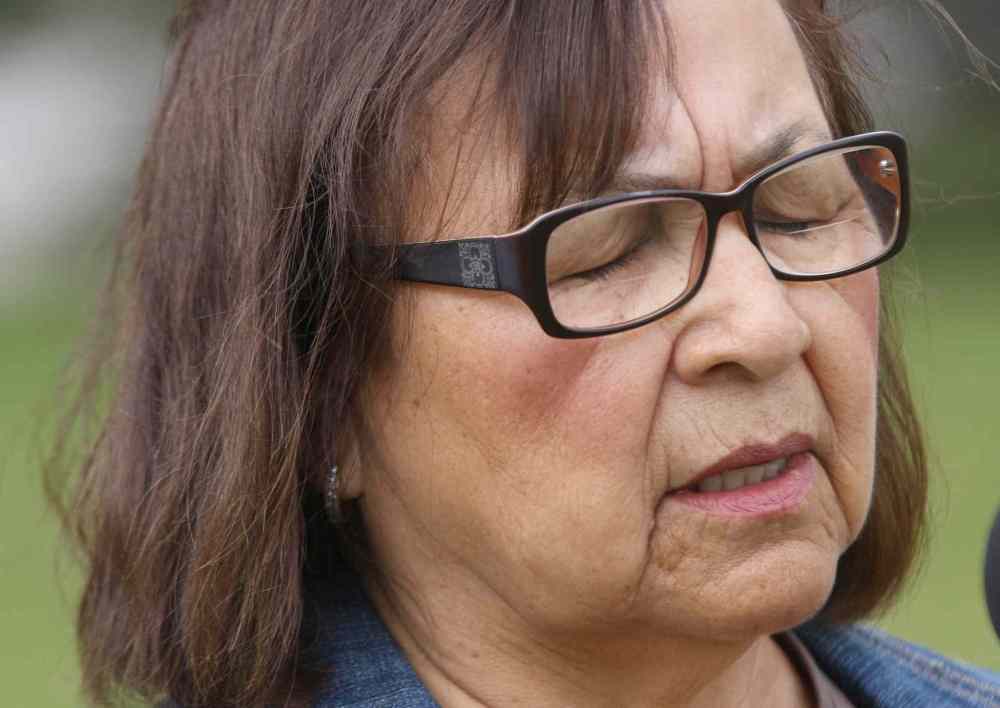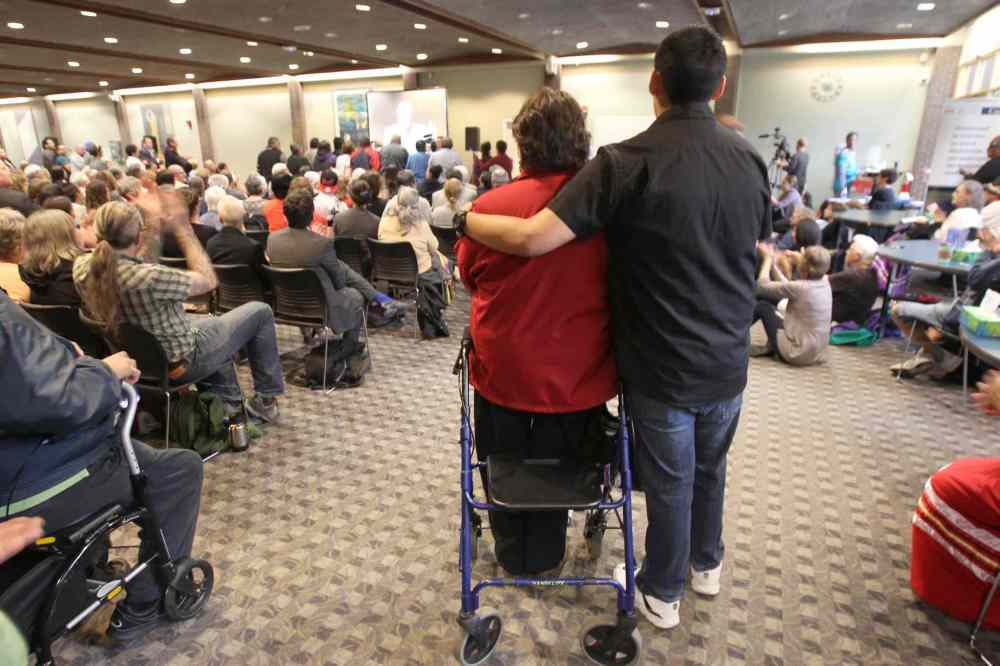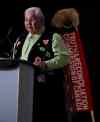‘Colonial patterns are still there’
Political will to change lacking, says grand chief
Advertisement
Read this article for free:
or
Already have an account? Log in here »
To continue reading, please subscribe:
Monthly Digital Subscription
$0 for the first 4 weeks*
- Enjoy unlimited reading on winnipegfreepress.com
- Read the E-Edition, our digital replica newspaper
- Access News Break, our award-winning app
- Play interactive puzzles
*No charge for 4 weeks then price increases to the regular rate of $19.00 plus GST every four weeks. Offer available to new and qualified returning subscribers only. Cancel any time.
Monthly Digital Subscription
$4.75/week*
- Enjoy unlimited reading on winnipegfreepress.com
- Read the E-Edition, our digital replica newspaper
- Access News Break, our award-winning app
- Play interactive puzzles
*Billed as $19 plus GST every four weeks. Cancel any time.
To continue reading, please subscribe:
Add Free Press access to your Brandon Sun subscription for only an additional
$1 for the first 4 weeks*
*Your next subscription payment will increase by $1.00 and you will be charged $16.99 plus GST for four weeks. After four weeks, your payment will increase to $23.99 plus GST every four weeks.
Read unlimited articles for free today:
or
Already have an account? Log in here »
Hey there, time traveller!
This article was published 03/06/2015 (3818 days ago), so information in it may no longer be current.
Moments after the Truth and Reconciliation Commission released its report and amid a cheerful march down Portage Avenue, student Jocelyn Peebles was asked whether Tuesday marks a turning point for Canada.
“It’s kind of 50-50,” said Peebles, a mother of three. “But I’m rooting for it to be a turning point, not just for me, but for my kids.”
Peebles’ grandparents were residential school students, though they never talked about their experience. The 22-year-old was among 700 people who jammed into the University of Winnipeg’s cafeteria Tuesday to watch the TRC’s news conference via video feed. Peebles said she learned things she didn’t know about the schools and the damage they did.

The crowd at the University of Winnipeg honoured a handful of survivors present and speakers applauded their courage and the seminal work of the TRC. But it was palpable skepticism about Canada’s response to calls for reconciliation that kicked off the day, and ended it.
Margaret Lavalee, a residential school survivor who helped initiate the gathering at the U of W, said elders at her home reserve of Sagkeeng First Nation questioned whether it’s up to First Nations, who welcomed colonial settlers to Canada with friendship, to now reconcile.
Lavalee pointed to “never-ending” poverty among indigenous people, a child-welfare system that removes kids from families, health problems such as diabetes, and seemingly endless cases of missing or murdered women.
“So how do we reconcile with the government, when nothing is being done to help support our children?” asked Lavalee.
Grand Chief Derek Nepinak delivered even tougher remarks, saying the political approach to First Nations that spawned residential schools more than a century ago is still in place.
“I’m going to tell you right now it’s going to take a long time to deconstruct these institutions that have been galvanized by systemic racism,” said Nepinak, who heads the Assembly of Manitoba Chiefs. “The atrocities of yesterday are happening right now… The colonial patterns are still there.”

Nepinak called on Canada to use the TRC’s recommendations to “make changes within this lifetime,” so another TRC isn’t needed in a few decades.
Residential school survivor and teacher Caroline Ouskun said she agreed with the TRC’s recommendation to reform the child-welfare system. She said many aboriginal children in care suffer the same trauma as residential school survivors.
And, she agreed with the TRC’s commissioners that residential schools amounted to a cultural genocide.
“You can’t call it anything else,” said Ouskun, who is from Split Lake First Nation. “Talk to the survivors and you’ll know.”
But, speaking to reporters following the event, Ouskun also described her attempts to reconcile with her own family, her five children, nine grandchildren and four great-grandchildren. She said she was struck by the words of TRC commissioner Wilton Littlechild, who said seven words could help heal families whose relationships were damaged by residential schools, and reconcile Canadians.
“I’m sorry. I love you. Thank you,” repeated Ouskun. “We still have a hard time saying those words… Hugs, kisses. Birthdays. Thank you for putting up with me as a survivor.”

Tuesday’s event began at the U of W, where Premier Greg Selinger, Mayor Brian Bowman and others offered short remarks. Then, following a ceremony, hundreds of people marched down Portage Avenue and Main Street to Thunderbird House for a feast.
maryagnes.welch@freepress.mb.ca
History
Updated on Wednesday, June 3, 2015 8:03 AM CDT: Replaces photos









